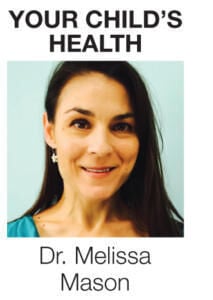
September was National Suicide Prevention Month and, this month, New Mexicans need to be prepared for a new way of dialing local phone numbers that will hopefully save lives. The National Suicide Prevention Hotline will be changing from the 1-800-273-8255 (TALK) to a much simpler and easier to remember three-digit number, 9-8-8. The switch to using 9-8-8 is akin to calling 9-1-1 for emergencies, and is much easier to remember in times of crisis. The hotline is in place to enable individuals of all ages to be able to connect with counselors who are trained in suicide prevention and mental health emergencies. Starting October 24, New Mexicans must use ten digits when dialing local calls as we are one of 35 states that currently permits seven-digit dialing. We have local numbers using 988 as the first three digits, also known as the central office code or local exchange. On or after October 24, if you use only seven digits for local dialing, your call may not go through or you may hear a recording directing you to use a ten-digit number. There is no need to wait for October 24 to begin using ten-digit phone numbers as this has been enabled since April 24, 2021. Start reprogramming all those numbers in your contact list now! According to statistics from the New Mexico Department of Health website, New Mexico has the second-highest rate of suicide in the nation, with a rate that is consistently 50% higher than the national average. Suicide is the eighth leading cause of death in our state for all ages, but is the leading cause of death in 15- to 17-year-olds (this rate also includes unintentional injuries). It is the second-highest cause of death in age ranges from 5 to 14 and 18 to 35. Rates are also increasing, doubling in those aged 65-74 and tripling in 10- to 14-year-olds. Rates are three times higher in males than females, and highest amongst Caucasian and Indigenous people in our state. Additionally, adolescents who identify as members of the LGBTQ+ community are more likely to die by suicide than heterosexual teens of the same age. About two-thirds of individuals who complete suicide suffer from depression. Depression is, unfortunately, common in children and teens, and seems to have become even more so during the pandemic. In fact, 0.5% of kids 3-5 years of age, 1.4% of kids 6-11 years old, and 5-11% of adolescents 12-17 years of age (shockingly, almost 20% of teenage girls) suffer from depression. Depression can also run in families. Kids and teens often will not tell you outright that they are depressed, so it can be helpful to know some of the warning signs. Depression can be exhibited by multiple different symptoms in kids and teens. These symptoms may include: sadness or irritability; change in sleep patterns and eating habits; weight loss or gain; no longer enjoying things that made them happy; isolating themselves from friends or social groups; fatigue or low energy; exhibiting low self-esteem; decreased focus or drop in grades; complaining of physical aches and pains with no identifiable cause; seeming uncaring about the future; neglect of personal appearance or responsibilities; self-harm; using drugs or alcohol; and talking about self-harm or suicide. If you are concerned about your child or teen, schedule an appointment with their health care provider. At home, I encourage you to talk with and listen to your children with love and support. Asking someone if they are thinking about hurting themselves or ending their life does not encourage them to do so. In fact, giving them the safe space to talk about how they are feeling can be both supportive and protective. Coping skills you may assist them in developing are: relaxation, focusing on their strengths, helping them to describe their feelings, looking at their problems in a different more positive way, and breaking down their problems into smaller more manageable steps. Lock up medication and weapons, separating ammunition from the firearm. There is a much higher suicide success rate in homes with firearms. In addition, make sure they have trusted contacts to call if they are feeling worse and teach them to share their concerns with you if their friends are depressed or suicidal. You are loved, your life has worth and you matter. Melissa Mason is a general pediatrician with Journey Pediatrics in Albuquerque. Please send your questions to melissaemason@gmail.com. ResourcesSubstance Abuse and Mental Health Services Administration samhsa.gov New Mexico Crisis Line 1-855-NMCRISIS (1-855-662-7474); nmcrisisline.com National Suicide Prevention Lifeline 1-800-273-8255; suicidepreventionlifeline.org The Trevor Project thetrevorproject.org/get-help/



